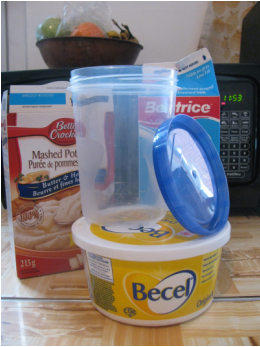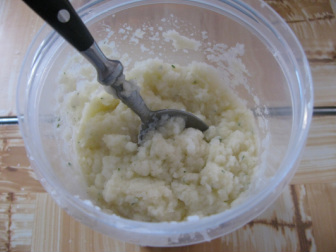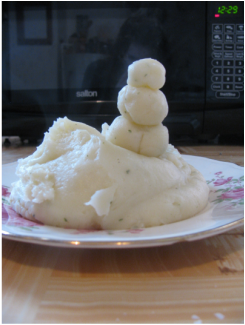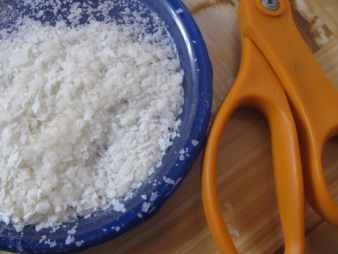
It only seems fair that a search for food that's fast, easy, tasty and mostly plants we should investigate the grocery store items that claim to be so fast they're “instant”. I love a quick fix, but how good are these pragmatic dishes for you, and how good do they taste?
The plan:
We've all heard of instant noodles and rice, which are indeed mostly plants (grains). However, we're going to try to get a bit further into the realm of fruit and vegetables. The internet says many plants come in freeze-dried powders, like strawberries, mango, onion, cucumber and cauliflower. Real life begs to differ, though. My local grocery stores limit their instant veggie offerings to the king of all comfort foods: mashed potatoes.
A lot of people wonder if potatoes from powder can match from-scratch. If we're talking taste, it's up to you. With some vigorous stirring, I find these guys pass pretty well for the real thing.
Cost comparisons between the original and instant potatoes come out with differing results, but you've got to acknowledge that the long shelf life plus the time saved between cleaning, cutting, boiling and mashing give the instant tubers a bit of an advantage. My package cost me $3.09, but my grocery store is pricey. For more on the difference, check out The Saved Quarter.

So maybe this food won't make the short-list for plants, but insta-potatoes are at least better than greasy pepperoni pizza from down the street.
The procedure:
Buying: I used Betty Crocker's Butter and Herb Mashed potatoes.
Cooking: In terms of convenience, this plant is pro. By microwave this whole process takes 10 minutes.

For Crocker sized servings, I find a reused 750g yogurt container works really well.
2. Partially cover (I just set the lid on top without really closing the container) and microwave on high for 6 minutes.
3. Stir the potatoes until they're blended and smooth.
4. Let sit for a few minutes to stiffen.
Know your plants:
Instant Potatoes are a Canadian invention, brought about by research scientist Edward Asselbergs. They were created to fortify foods and as a convenience marketed to campers and the military.
Potato flakes, as the packaged powder is called, are commonly found in our everyday food. They're used to as a thickener in gravies and frozen desserts. They're also used to keep baked goods like muffins moist, extending their shelf life.

Then come the additives. Mono and diglycerides are fatty acid compounds that work to make the mashed potatoes a little less sticky for the next step of the process. Another additive that may be used is sodium bisulphate, commonly used to prevent oxidization in wine, to prevent the potatoes from browning.
From the mixer, the mashed potatoes are spun in a large drying drum. When dry, the film of dehydrated potatoes is peeled off the sides (thanks glycerides) and fed into a granulator. Once broken into small enough flakes, the potatoes are packaged and sent on their way.
My Betty Crocker flakes are a product of the U.S.A., but Canada is pretty self reliant when it comes to 'tatoes. Predictably, Prince Edward Island is our number one producer, followed by Manitoba. Globally, potato production is shifting to China and India as their populations continue to explode.
Instant potatoes are a plant in a pinch, but I think we can do better. Check back February 16th for the next chapter of the Mostly Plants cooking expedition.
 RSS Feed
RSS Feed